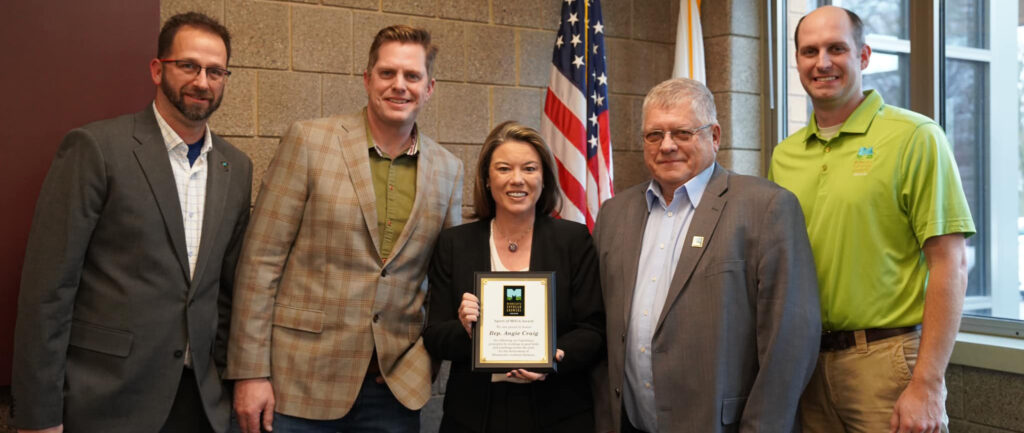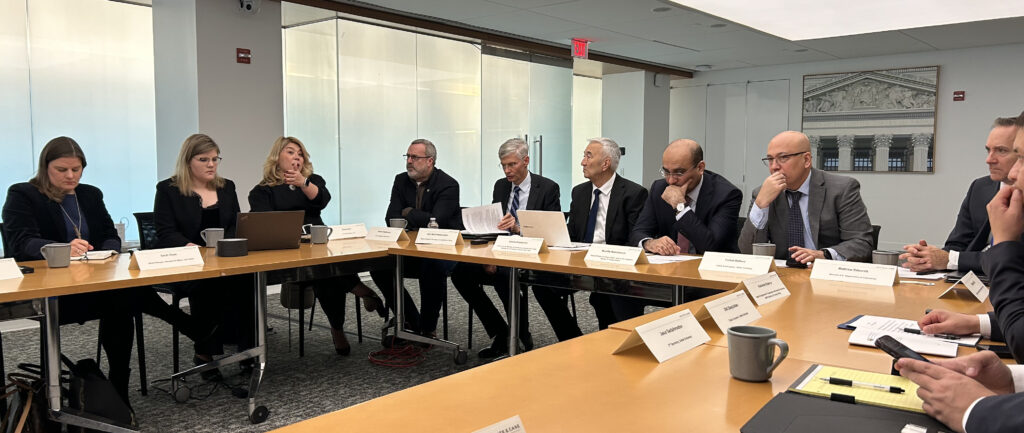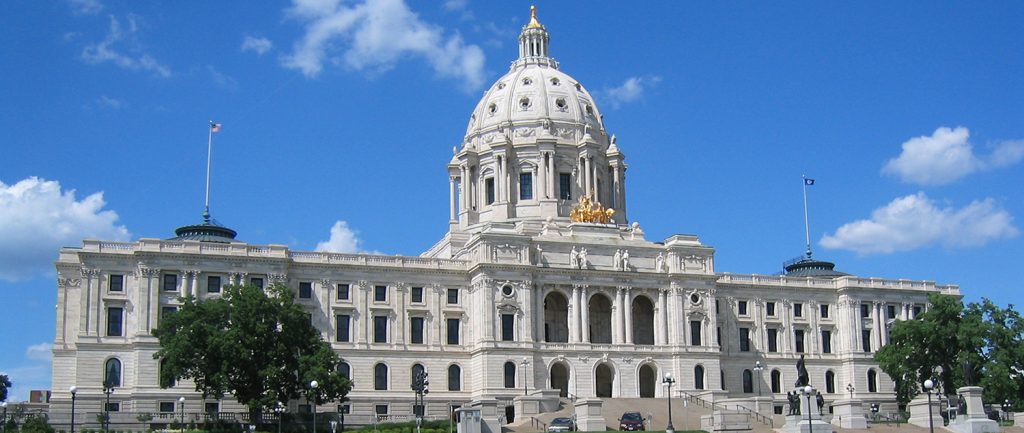Agriculture trade was front and center this week in Bogotá, Colombia in conjunction with the U.S. Department of Agriculture’s (USDA) largest ever trade mission.
“We are anxious to leave no stone unturned when it comes to trade,” USDA Under Secretary for Trade and Foreign Agricultural Affairs Ted McKinney told Worthington soybean farmer Bill Gordon during a private meeting Wednesday prior to a reception at the residence of Kevin Whitaker, the United States Ambassador to Colombia.
Gordon, the vice president of the American Soybean Association, was determined to make sure Minnesota soybean farmers had a seat at the trade table, literally. In a 36-hour span, Gordon participated in a roundtable panel with Colombian officials, met with Colombia’s largest fats and oils organization, visited with the U.S. Ambassador to Colombia and earned 20 minutes of face time with McKinney.
“It was definitely a couple of productive days for soybean trade in Colombia,” Gordon said following a meeting Wednesday afternoon with McKinney. “We were able to visit with Colombian officials, and emphasize the high quality of our beans. And, of course, the chance for some one-on-one time with Ted McKinney was enormously beneficial and constructive on the policy and export side.”

Since implementation of the U.S.-Colombia Free Trade Agreement in 2012, U.S. farm and food exports to Colombia have nearly tripled, reaching a record $2.9 billion last year. In 2018, 100 percent of Colombia’s soybean imports, 97 percent of corn imports and 91 percent of pork and pork product imports came from the U.S.
Colombia, says Luis Bustamante of the U.S. Soybean Export Council (USSEC), is a bit of a paradox.
“This country has a lot of economic and social problems,” says Bustamante, a native of Medellin who serves as USSEC’s soy marketing specialist in the Americas, “but it keeps growing.”
On Wednesday afternoon in the heart of Bogotá, Gordon represented the state’s soybean growers during a meeting at the offices of Asograsas, a non-profit fats and cooking oils association. Along with a team from USSEC, Gordon highlighted the benefits of high oleic soybean oil.
Paola Andrea Munoz Jurado, president of Asograsas, said that although palm oil is more prevalent in Colombia, the industry is beginning to favor the cost savings from soybean oil. Last year, the U.S. exported $100 million in soybean oil to Colombia.
“Soybean oil is becoming very important because of high palm oil prices,” Munoz Jurado said.
At the close of the meeting, Gordon spoke with Munoz Jurado about the possibility of bringing a delegation of Colombian government officials to visit a soybean farm in Minnesota during the growing season.
“Will it be snowing?” she asked.
Gordon could make no such promises, but added with a smile, “We’ll feed you well, that I can assure you. And you’ll love our beans.”
Kevin Roepke, who attended the meeting as USSEC’s regional director of the Americas, says meetings with Colombian officials helps lay the groundwork for future increases in soybean exports.
“We were very encouraged by the conversation and open dialogue with the Colombians,” says Roepke, who’s based in Guadalajara, Mexico. “Asograsas is a top notch organization that understands the consumer practices of the Colombian people. We look forward to working to the point where this relationship can continue to benefit U.S. soybean growers.”
Later that afternoon, Gordon, Roepke and USSEC’s Mark Seib participated in a roundtable luncheon with USDA and Colombia agriculture and trade officials.
During his introductory comments, McKinney lauded the U.S.-Colombian partnership, calling it a model for other trade agreements. Gordon later spoke to the officials about soybean growers’ reliance on trade, and the crippling effects of tariffs on the U.S. soybean market before closing on a hopeful tone.
“We’re shifting our mindset from putting all our eggs into one (trade) basket,” he said.
Early Thursday afternoon, Gordon and a delegation from the Minnesota Department of Agriculture (MDA) flew to Lima, Peru, where they are due to meet with buyers of soybeans and tour local markets before flying home early Saturday morning.
“I’m looking forward to continuing on this mission with MDA and the other commodity groups and organizations from Minnesota,” Gordon said. “We’re all working toward the same goal.”






